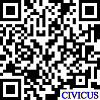Pembelajaran Peer Group Learning dalam Meningkatkan Prestasi Belajar Pendidikan Kewarganegaraan
Abstract
Abstrak: Penelitian ini dilakukan untuk mengetahui penerapan metode tutor teman sebaya dalam meningkatkan prestasi belajar PKn siswa kelas X SMK Negeri 1 Praya. Metode penelitian menggunakan pendekatan penelitian tindakan kelas, subjek siswa kelas 3, pengumpulan data menggunakan observasi dan dokumentasi, analisis data pendekatan deskriptif kualitatif dan kuantitatif. Hasil penelitian: 1) Rata-rata nilai pada kegiatan pratindakan adalah 60,67 dengan nilai tertinggi yaitu 80 dan nilai terendah 60. Siswa yang sudah mencapai KKM 75 berjumlah 5 siswa dan siswa yang belum tuntas berjumlah 32 siswa. 2) Rata-rata nilai pada penelitian siklus I adalah 73,9 dengan nilai tertinggi yaitu 85 dan nilai terendah yaitu 65. Siswa yang sudah mencapai KKM berjumlah 16 siswa dan siswa yang belum tuntas berjumlah 21 siswa. 3) Rata-rata nilai pada penelitian siklus II adalah 83,93 dengan nilai tertinggi yaitu 90 dan nilai terendah yaitu 70. Siswa yang sudah mencapai KKM berjumlah 32 siswa dan yang belum tuntas berjumlah 5 siswa.
Abstract: This research was conducted to determine the application of the peer tutor method in improving the Civics learning achievement of class X students of SMK Negeri 1 Praya. The research method used a classroom action research approach, the subject of grade 3 students, data collection using observation and documentation, data analysis with qualitative and quantitative descriptive approaches. Results of the study: 1) The average value of the pre-action activity was 60.67 with the highest score of 80 and the lowest score of 60. Students who have reached KKM 75 are 5 students and students who have not completed are 32 students. 2) The average value in the first cycle research was 73.9 with the highest score of 85 and the lowest score of 65. There were 16 students who had reached the KKM and 21 students who had not completed it. 3) The average value in the second cycle of research is 83.93 with the highest score of 90 and the lowest score of 70. Students who have reached the KKM are 32 students and those who have not completed are 5 students.
Keywords
Full Text:
PDFReferences
T. S. M. Meerah and L. Halim, “Improve feedback on teaching and learning at the university through peer group,” Procedia-Social Behav. Sci., vol. 18, pp. 633–637, 2011.
L. Lismawati, S. Ahmad, and N. D. Lestari, “Hubungan Antara Pendekatan Pembelajaran Peer Group Dengan Hasil Belajar Siswa Pada Mata Pelajaran Ekonomi SMA Negeri 1 Palembang,” PROMOSI J. Progr. Stud. Pendidik. Ekon., vol. 7, no. 2, 2019.
A. R. Sari, “Peningkatan Prestasi Belajar Dan Kemampuan Group-Workmelalui Kombinasi Pembelajaran Peer Learning Dan Blended Learning,” J. Pendidik. Akunt. Indones., vol. 12, no. 1, 2014.
T. Pietarinen, S. Volet, E. Lehtinen, and M. Vauras, “Affect in peer group learning during virtual science inquiry: Insights from Self-Reports and video observations,” Front. Psychol., vol. 10, 2019.
S. Solfema and S. Wahid, “Peer Group Learning Method to Improve the College Student’s Achievement,” J. Nonform. Educ., vol. 4, no. 2, pp. 187–196, 2018.
A. Larrain et al., “The Effect of Peer‐Group Argumentative Dialogue on Delayed Gains in Scientific Content Knowledge,” New Dir. Child Adolesc. Dev., vol. 2018, no. 162, pp. 67–87, 2018.
F. Maine, S. Rojas-Drummond, R. Hofmann, and M. J. Barrera, “Symmetries and asymmetries in children’s peer-group reading discussions,” Aust. J. Lang. Literacy, vol. 43, no. 1, p. 17, 2020.
J. Dewey, “Logica: teoria dell’indagine, tr. it,” A. Visalberghi, Einaudi, Torino, 1974.
A. Sutisna, “Model Pembelajaran Peer Group untuk Peningkatan Kemandirian Belajar Mahasiswa,” Perspekt. Ilmu Pendidik., vol. 24, no. XV, pp. 113–127, 2011.
K. G. Collier, “Peer-group learning in higher education: The development of higher order skills,” Stud. High. Educ., vol. 5, no. 1, pp. 55–62, 1980.
S. B. Djamarah and A. Zain, “Strategi Belajar Mengajar,” Rineka Cipta, vol. 124, 2006.
S. B. Djamarah, “Aswan zain. 2010,” Strateg. Belajar Mengajar.
S. I. Widianingtyas and B. Bella, “Metode Pembelajaran Tutor Teman Sebaya (Peer Group) Dalam Meningkatkan Kompetensi Mahasiswa,” J. Penelit. Kesehat., vol. 3, no. 1, pp. 19–24, 2016.
M. Palennari and S. Hartati, “Penerapan Metode Peer Group Teaching dalam Proses Pembelajaran Biologi untuk Meningkatkan Keaktifan dan Hasil Belajar Siswa Kelas X SMA Negeri 3 Makassar,” bionature, vol. 9, no. 2, 2012.
L. Saparwadi, “Efektivitas metode pembelajaran drill dengan pendekatan peer teaching ditinjau dari minat dan prestasi belajar matematika siswa,” J. Didakt. Mat., vol. 3, no. 1, pp. 39–46, 2016.
DOI: https://doi.org/10.31764/civicus.v8i2.2821
Refbacks
- There are currently no refbacks.
_________________________________________________________
CIVICUS : Pendidikan-Penelitian-Pengabdian Pendidikan Pancasila dan Kewarganegaraan
ISSN 2614-509X (Online) | ISSN 2338-9680 (Cetak)
Email: [email protected] | Contact: 085238445360
Tel / fax : (0370)-633723 / (0370)-641906
_______________________________________________
 | CIVICUS : Pendidikan-Penelitian-Pengabdian Pendidikan Pancasila dan Kewarganegaraan |
______________________________________________
CIVICUS : Pendidikan-Penelitian-Pengabdian Pendidikan Pancasila dan Kewarganegaraan sudah terindeks oleh:
CIVICUS Editorial Office:






















